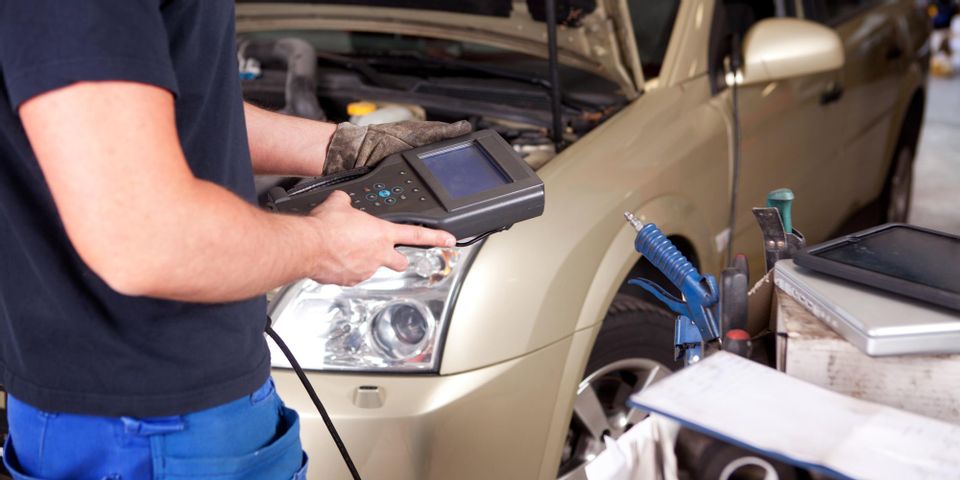
In the past, mechanics would have to inspect the whole engine to determine why the check engine light went on. Now, modern car models are equipped with a central computer that can communicate with diagnostic software to quickly pinpoint the issue. The guide below explains what you should know about engine diagnostics.
What Does an Engine Diagnostic Test Involve?
When you take your car to a mechanic with diagnostic tools, they’ll sync up to the car’s computer. With sensors placed throughout the engine, the central computer in your vehicle can indicate which areas have performance issues and send a code to the mechanic’s computer.
While this code indicates the general area where the problem is located, it won’t provide a specific reason—your mechanic will still need to use their expertise to figure out and resolve the precise issue.
Why Should You Care About Engine Diagnostics?
 Engine diagnostics aren’t just helpful when your check engine light is on — they can also catch problems before they happen. For example, when the exhaust system or brakes are underperforming, the engine diagnostics will indicate a problem. This will allow your technician to find and resolve the problem before it becomes an inconvenience.
Engine diagnostics aren’t just helpful when your check engine light is on — they can also catch problems before they happen. For example, when the exhaust system or brakes are underperforming, the engine diagnostics will indicate a problem. This will allow your technician to find and resolve the problem before it becomes an inconvenience.
Take your car in for a diagnostic test at least once a year to check for these issues. You can schedule it alongside your routine oil changes to make the process convenient. You’ll feel more confident knowing about any potential problem areas, and you’ll be better prepared to budget for future repairs.
If you’re looking for comprehensive engine diagnostics, visit the experts at Vito’s Auto Tech in Waterbury, CT. For more than three decades, they’ve been the area’s source for repairs and maintenance on foreign and domestic models. Whether you need routine service, like an oil change or wheel rotation, or your engine needs repairs, they will help. To schedule a service, call (203) 755-0020 and learn more about their offerings online.
About the Business
Have a question? Ask the experts!
Send your question

